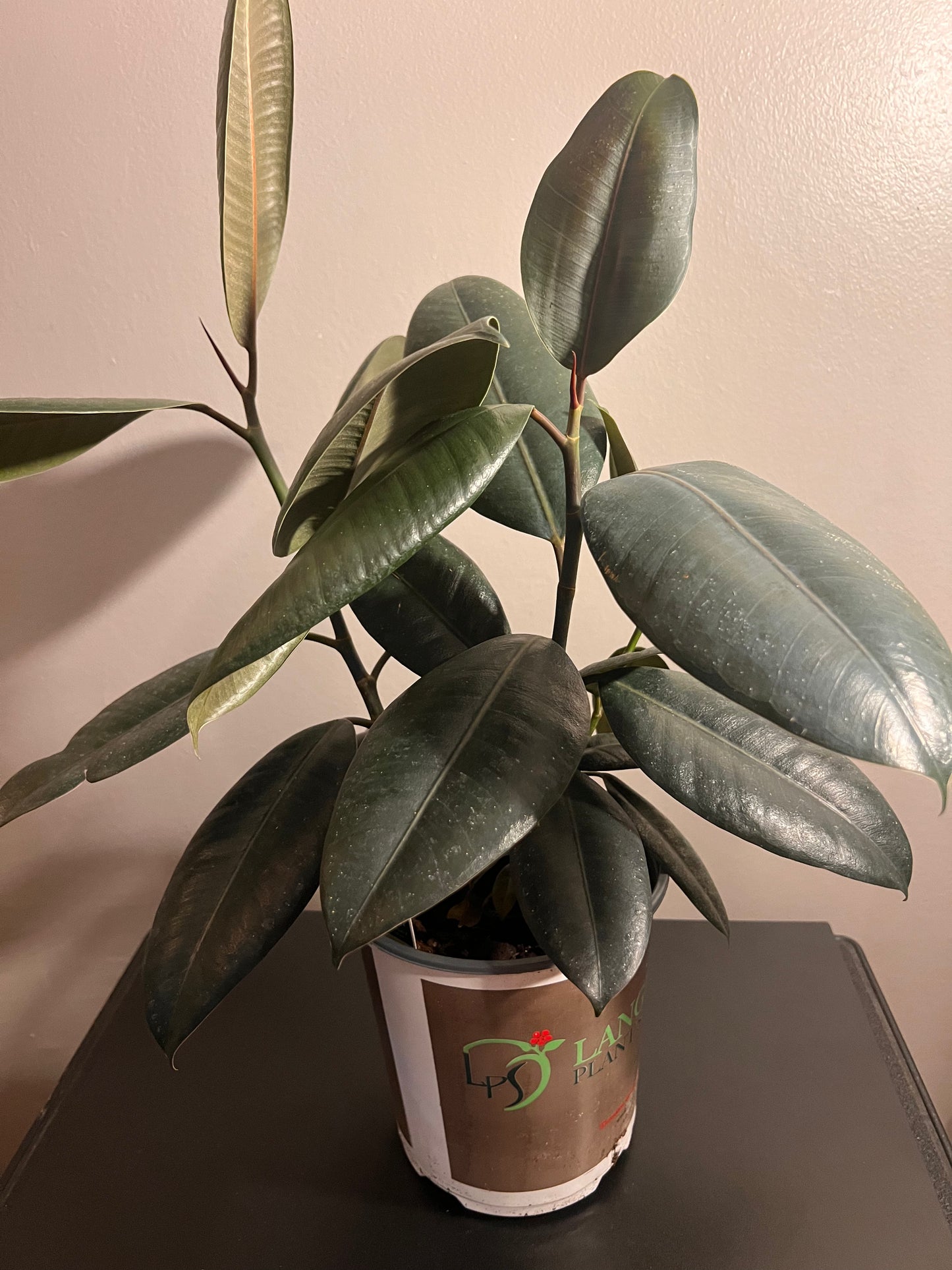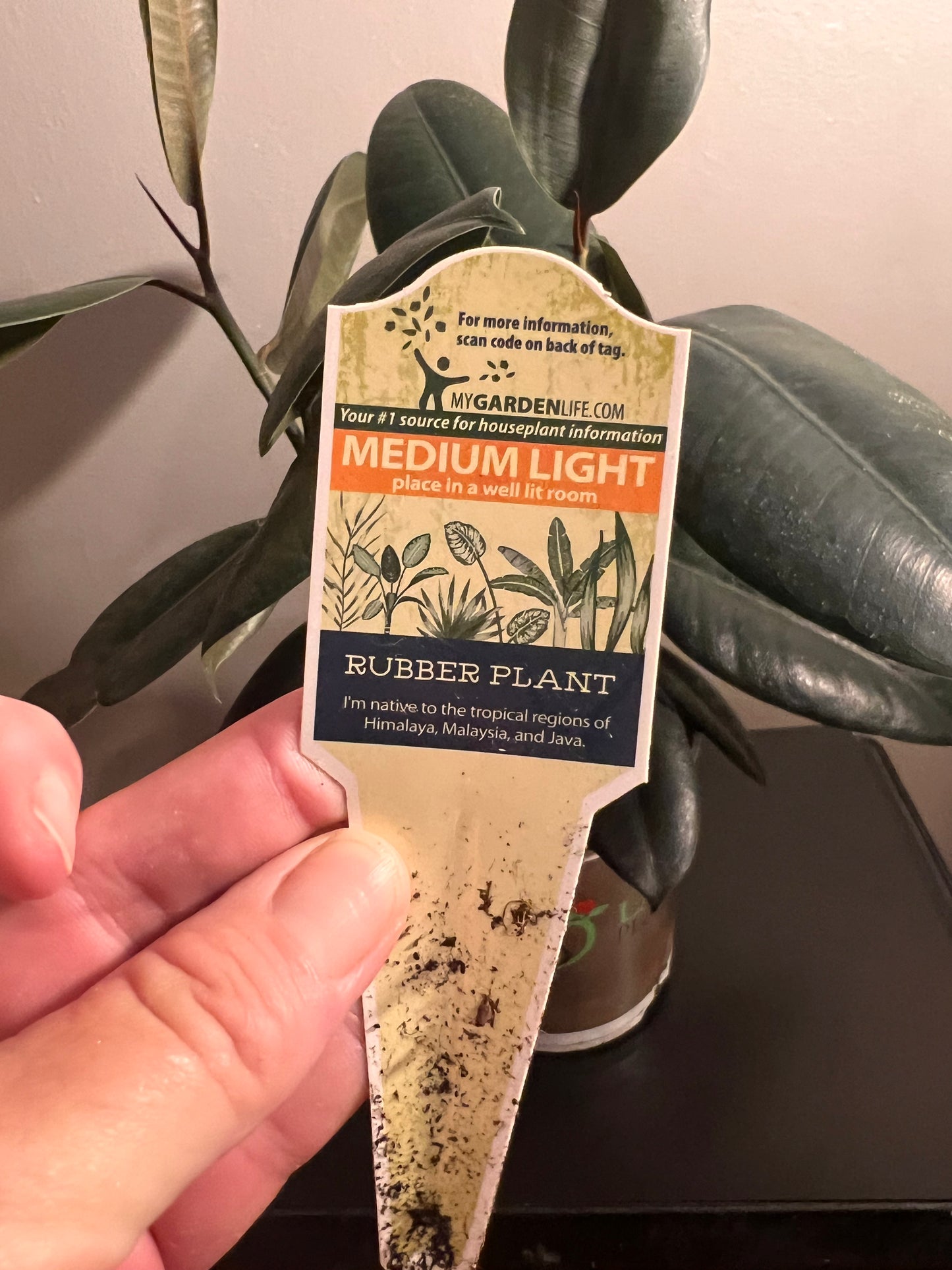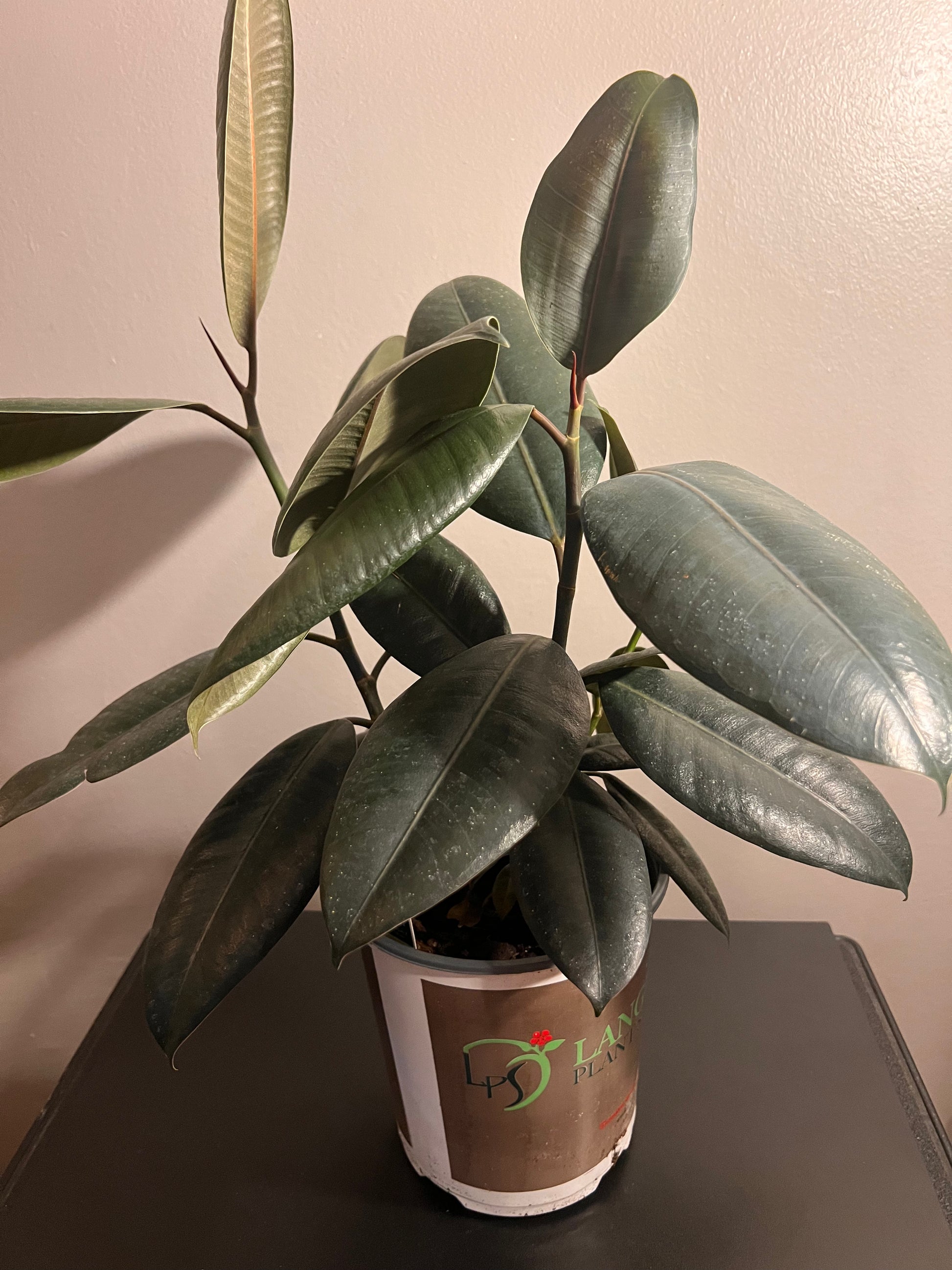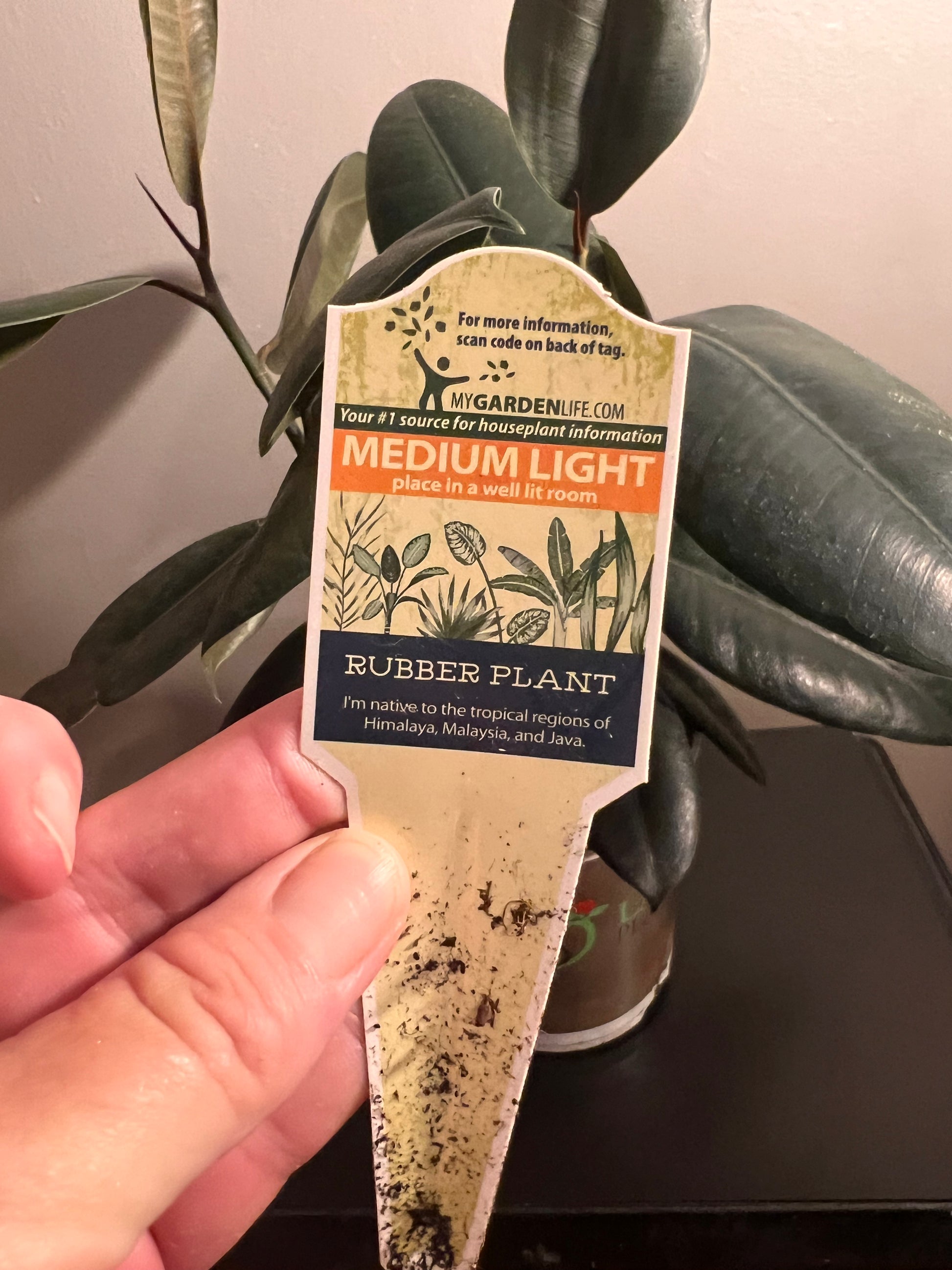Ficus elastica, Rubber Plant
Ficus elastica, Rubber Plant
Ficus Elastica Overview
Description:
The Ficus elastica, commonly known as the rubber tree or rubber plant, is a popular houseplant known for its large, glossy leaves and its relatively easy care.
Grow Zones:
Ficus rubber trees are typically grown as indoor plants in most regions, but they can be grown outdoors in USDA hardiness zones 10 to 12. In these zones, the climate is warm enough year-round for the rubber tree to thrive outdoors.
Height and Width:
Height: Indoors, it can grow to 6-10 feet (1.8-3 meters), while outdoors, it can reach 50-100 feet (15-30 meters) in its natural habitat.
Width: Indoor plants typically spread about 2-4 feet (0.6-1.2 meters), but outdoor plants can have a much wider spread.
Growing Tips:
Light:
Indoors: Place the rubber tree in a spot with bright, indirect light. It can tolerate some direct sunlight, but too much can scorch its leaves. Low light conditions can lead to slower growth and leggy stems.
Outdoors: If grown outside in suitable zones, it should be placed in a location with partial shade to protect it from harsh midday sun.
Soil: Ficus plants prefer well-draining soil. A mix designed for houseplants or one you prepare with garden soil, peat, and perlite works well.
Watering: For indoor ficus, water thoroughly, then allow the top 1-2 inches of soil to dry out before watering again. Overwatering can lead to root rot, so make sure the plant is not sitting in water. For outdoor ficus, water regularly, especially during dry periods, but avoid waterlogging the soil.
Temperature: Ficus plants prefer temperatures between 60-75°F (15-24°C). Avoid cold drafts and temperatures below 55°F (13°C), as this can cause leaf drop.
Humidity: Ficus plants enjoy higher humidity levels. If grown indoors, misting the leaves or using a humidifier can help during dry seasons, especially in winter when indoor air tends to be dry.
Fertilization:
Feed ficus plants with a balanced, water-soluble fertilizer every 4-6 weeks during the growing season (spring and summer). Reduce feeding during the fall and winter months when growth slows.
Pruning: Prune ficus plants to maintain shape and remove any dead or yellowing leaves. For bushier growth, you can trim the ends of the branches.
Repotting: Ficus should be repotted every 2-3 years, or when the plant becomes root-bound. Choose a pot that is one size larger, and refresh the soil.
Propagation: Ficus can be propagated by cuttings. Take a healthy stem cutting with several leaves, dip it in rooting hormone, and place it in moist soil or water until roots develop.
Pest Control: Keep an eye out for common pests like spider mites, scale, and mealybugs. Wipe the leaves regularly with a damp cloth and use insecticidal soap or neem oil if needed. Yellowing leaves can indicate overwatering, while brown tips may suggest underwatering or low humidity.
---SHIPPING NOTICE PLEASE READ BEFORE PURCHASING LIVE PLANTS!---
We WILL NOT refund the purchase of or the shipping cost of live plants purchased with the intent to be shipped to states that do not authorize importing live plants or to states with restrictions! Purchases to these states will be held for 30 days for pick-up at our Slidell, Louisiana store and the shipping cost associated with these purchases will be held for the care of the plant while waiting to be picked up. All sales are final. If the plant(s) purchased are not picked up within 30 days from the date of order, these items will be returned to our sales inventory and you WILL NOT be refunded. Thank you for understanding these policies.
Due to regulations, certain states have restrictions on importing plants. Please review the list below to ensure you're not attempting to order any restricted plants in your area.
**Important Note:** We do not ship any plants outside the U.S.
State-Specific Restrictions - We ARE NOT responsible for any plant(s) that are not listed in these restrictions. Purchaser bears all responsibility for making sure the plant(s) they desire to purchase are not banned from being imported to the shipping state:
Arizona: Juglans spp.
California: Castanea spp., Juglans spp., Pinus spp., Quercus spp.
Colorado: Some counties restrict Prunus spp. Please verify your local county regulations.
Florida: Castanea spp., Cornus spp., Quercus spp., Cornus mas
Georgia: Vaccinium spp.
Hawaii: Pinus spp.
Idaho: Humulus lupulus, Mentha spp., Vitis spp.
Indiana: Fragraria spp., Rosa spp.
Kansas: Juglans spp.
Michigan: Abies spp., Vaccinium spp.
Montana: Pinus spp.
Nevada: Allium spp.
Mentha spp.
New Jersey: Rosa spp.
New York: Vitis spp.
Oregon: Allium spp., Castanea spp., Corylus spp., Humulus lupulus, Quercus spp., Sambucus nigra, Ulmus spp., Vaccinium spp., Vitis spp.
Texas: Juglans spp.
Washington: Allium spp., Castanea spp., Corylus spp., Humulus lupulus, Vaccinium spp., Vitis spp.
Wisconsin: Abies spp., Pinus spp., Picea spp., Mentha spp.
Additionally, we cannot ship plants in soil medium to the following states: AK, AL, AR, AZ, CA, HI, ID, KS, MS, MT, ND, NM, NV, OK, OR, SD, TX, UT, WA.
Couldn't load pickup availability




